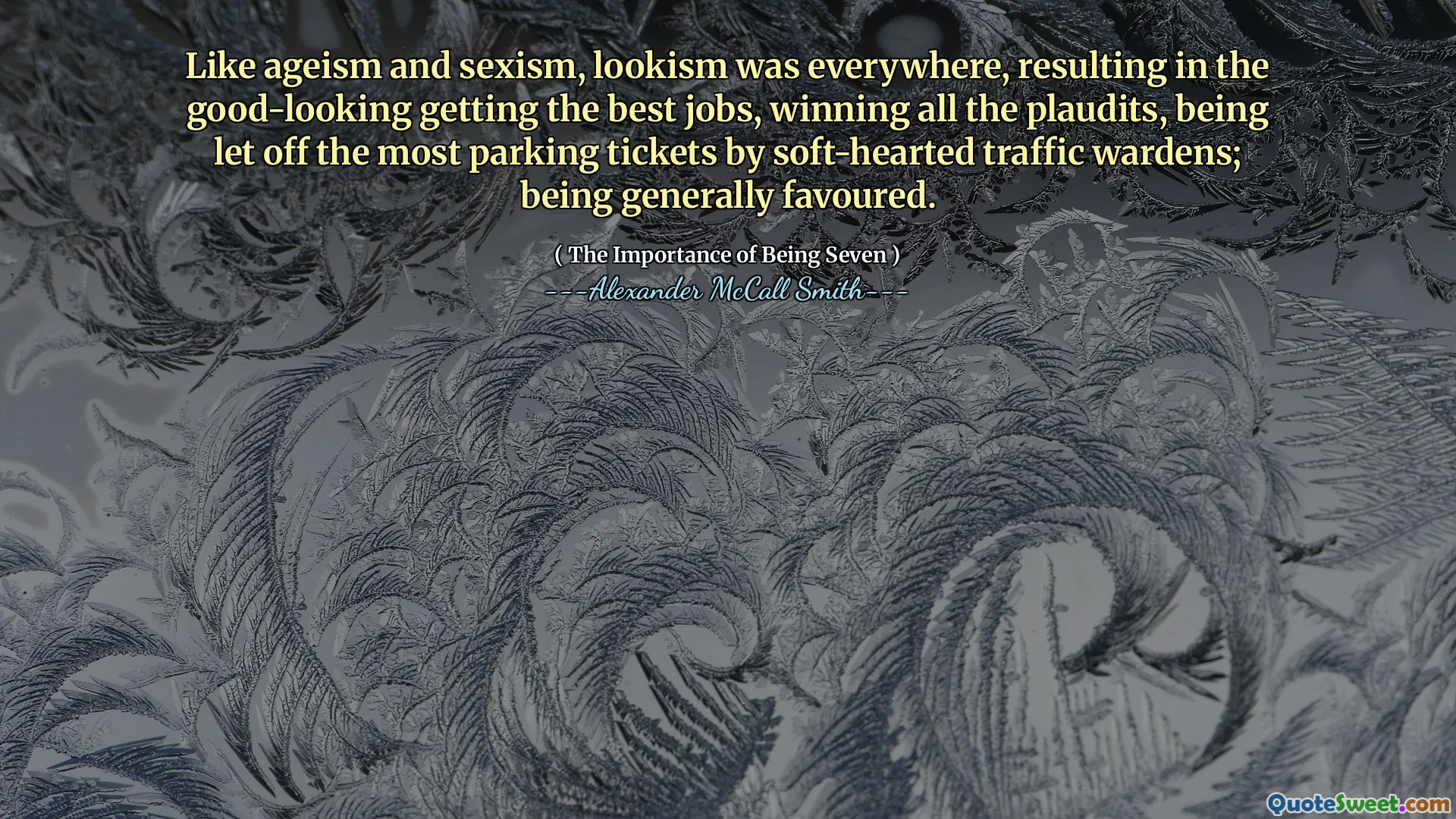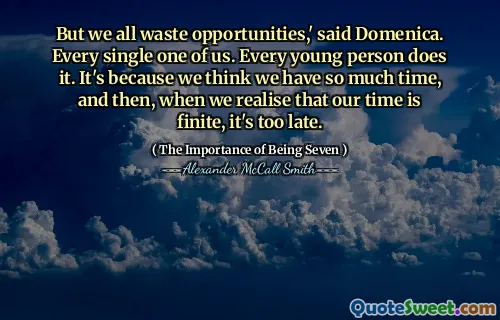
Like ageism and sexism, lookism was everywhere, resulting in the good-looking getting the best jobs, winning all the plaudits, being let off the most parking tickets by soft-hearted traffic wardens; being generally favoured.
The concept of lookism, akin to ageism and sexism, highlights the bias faced by individuals based on their physical appearance. In society, attractive people often receive preferential treatment, which is reflected in various aspects of life, from job opportunities to everyday interactions such as receiving leniency from authority figures like traffic wardens. This societal bias suggests that appearance can unduly influence perceptions and outcomes, allowing the good-looking to enjoy advantages over others.
This observation raises important questions about the fairness of such biases and their implications. Just as age and gender can lead to discrimination, lookism points to a pervasive issue where beauty dictates success and acceptance. The exploration of these themes in "The Importance of Being Seven" sheds light on how deeply ingrained cultural norms favor certain appearances, underscoring a need for awareness and change in societal attitudes towards beauty and worth.











